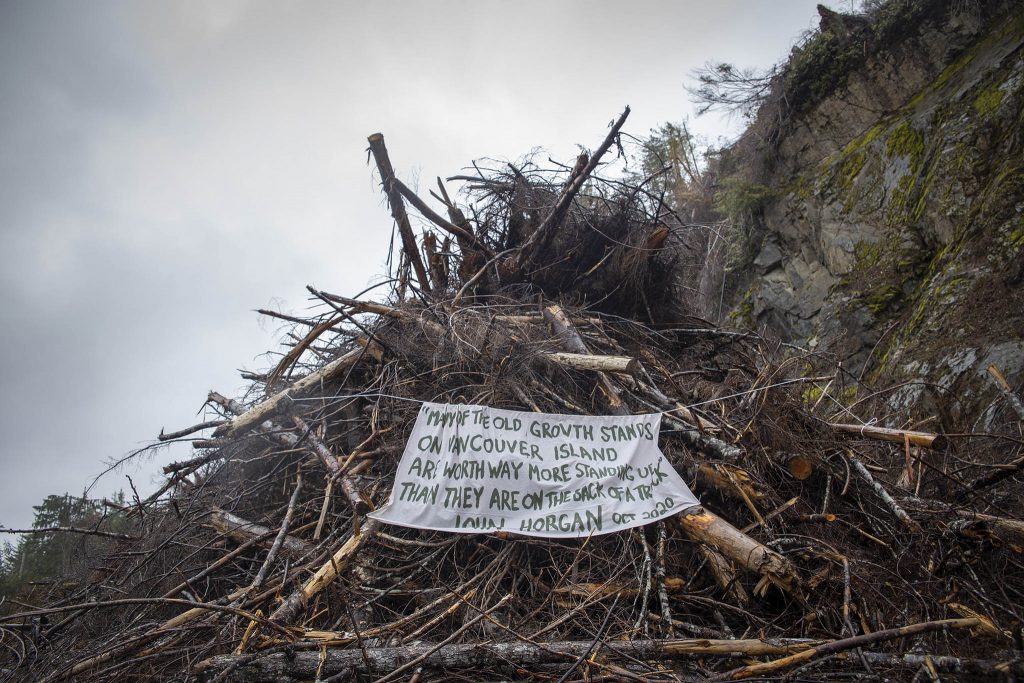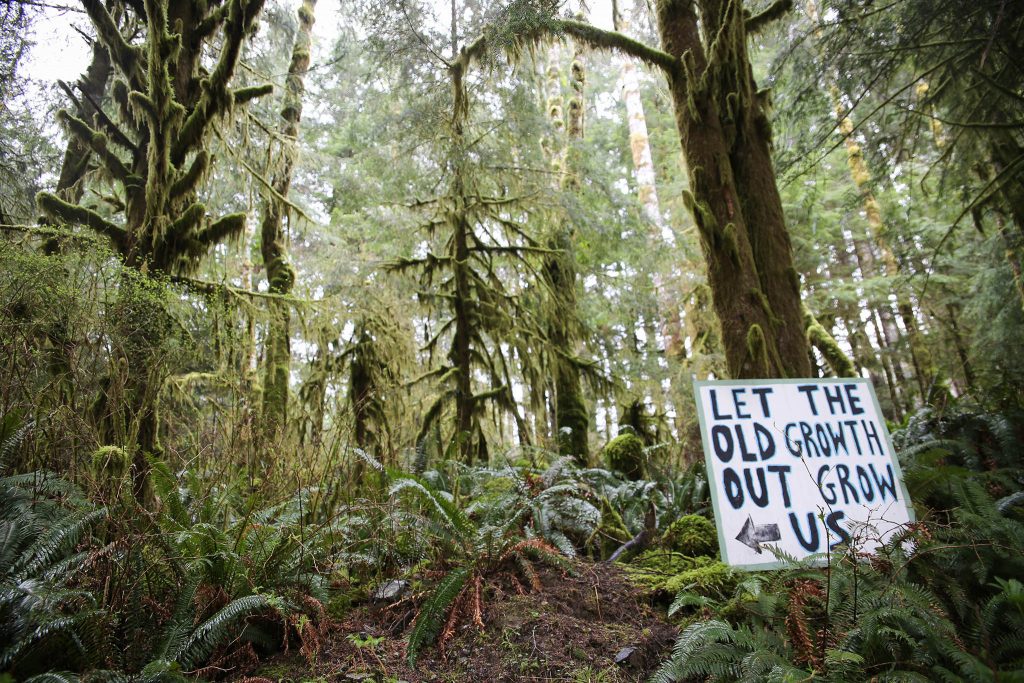We drive up a winding gravel road, noticing the evidence of the massacre lining our path as we make our way to camp. We pass weather-shrouded logging trucks loaded with trophies from the ancient forest; we hold our breath in grief for what is gone. “All Eyes on Fairy Creek” and “The Last Stand” are statements currently being echoed by various organizations, media, members of government, concerned citizens of British Columbia and beyond. Ally settler organizers standing in solidarity with Elder Bill Jones welcome us upon our arrival. Many of the people here have sacrificed months of their lives to peacefully advocate for the protection of old and ancient trees in the Fairy Creek watershed.
The unsustainable logging policies that have been in place for decades are responsible for the extraction of irreplaceable old-growth forests for monetary gain, replacing them with monocrop tree farms that leave little for new growth to rebuild upon. Thousand-year-old living landmarks with an abundance of environmental and cultural significance were framed as job opportunities and a ticket to economic prosperity for First Nation communities who had been forcibly removed from these very lands not-so-long ago. A recent statement from the Pacheedaht First Nation, understandably demanding autonomy in the matter, highlights how the colonial agendas have led to distrust. It is no surprise that the Nation is no longer welcoming third-party activism.
"To provide our community with the time necessary to develop our Stewardship Plan, we have secured commitments from tenure holders and the government of British Columbia to suspend and defer third-party forestry activities within specific areas identified by Pacheedaht. This will result in the implementation of an immediate interim conservation measure."
— Frank Queesto Jones and Jeff Jones, Forest Stewardship within Pacheedaht Territory Statement, April 12, 2021
Pacheedaht Elder Bill Jones’ response to the April 12, 2021 statement released by the Pacheedaht Chief & Council, was an example of how colonial displacement and oppression have affected his people. “B.C. has an extensive history of using corporations, as early as Hudson’s Bay Company and as recent as Teal Jones, to legitimize land and resource theft”, tactics that “dehumaniz[e] Indigenous people” in a “divide-and-conquer method of colonialism”.
The B.C. forest policy sets logging targets that fail to recognize the need to maintain a natural range of variability in ecosystems in order to support biodiversity and ecosystem health. Year after year, B.C. routinely allocates an Annual Allowable Cut (or AAC) that leads to levels of harvesting activity that directly affects a forest’s ability to recover. The current planning process places a higher weight on socially and economically driven incentives than on ecosystem-based conservation approaches, leading to continued deterioration of the ecological integrity of old forests. The lack of policy evaluation over the last 20 years and the absence of a consistent monitoring program alongside Indigenous knowledge keepers has resulted in incomplete and inaccurate data, leading to the mismanagement of forest ecosystems.
The current forestry inventory model defines old-growth on the B.C. coast as trees aged 250 years and older, failing to convey the difference between old trees and ancient trees, which are over 1,000 years in age. This is a misleading distinction, comparing ecosystems of varying function, growth complexity and structure. Currently, only 2.7% (~340,000 hectares) of high-productivity old growth remains in B.C. of the ~13.2 million hectares of total forested area. High-productivity forests are functionally complex habitats supporting significant ecological processes, accumulating biomass quickly and acting as carbon sinks, critical in mitigating climate change. The economic system currently in place undervalues biodiversity and prioritizes resource extraction of culturally and environmentally significant species for profit. With no alternative option for communities forced to choose between poverty and old-growth logging, the provincial government leaves people economically reliant on an industry with an expiration date. So why has it taken so long for the B.C. government to take action? Why is there no visible sign of a transition plan in place?
In the independent April 2020 Old Growth Strategic Review appointed by the B.C. Government: “A New Future for Old Forests,” authors Al Gorley and Garry Merkel highly recommended new adaptations of management due to increased societal value shifts. Additionally, development and consultation with Indigenous leaders, ecology and forestry experts and stakeholders on new policy and transitory measures for the industry were advised. Gorley and Merkel addressed how critical aspects of the previous policy (1992) were either “never implemented or discarded.” This was a review requested by the B.C. government and its Ministry of Forest, Lands and Natural Resource Operations and Rural Development who have yet to execute these recommendations. The review calls for a redirect of resources focused on second and third-growth harvesting, collaboration with First Nations communities, and additional funding and staff to transition out of the old model and into a sustainable one.
We need an immediate deferral and effective transitory measures because the reality is, once these forests are logged, jobs will be lost regardless. Indigenous-led monitoring initiatives are imperative, along with immediate support to the First Nations communities directly affected by this devastating oversight while the transition proceeds. Decades of mismanagement has fostered distrust in the provincial government and needs to be addressed; transparency is essential. If the government truly values our provinces’ rare and temperate rainforests, a drastic pivot in the industry with alternatives to renew and restore ecological integrity must be implemented.
take action
Call or send a letter to John Horgan
1-250-387-1715
premier@gov.bc.ca
Sign the petition to help protect endangered old-growth ecosystems: https://petitions.ourcommons.ca/en/Petition/Sign/e-3301



